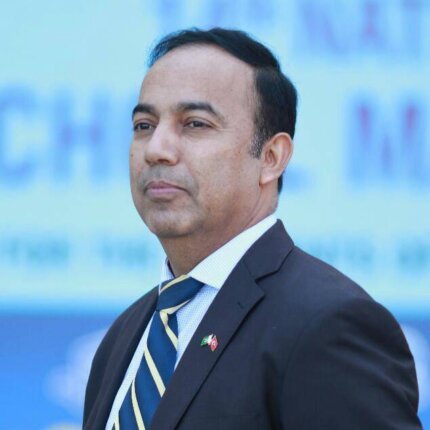Suhail Bin Aziz
In a bold move to foster moral integrity and social responsibility among its youth, Pakistan has unveiled a comprehensive Character Education Strategy, targeting students from early childhood through Grade 12. Spearheaded by the National Rahmatul lil Aalameen Wa Khatamun Nabiyyin Authority (NRKNA), the initiative blends Islamic teachings with universal virtues, aiming to cultivate a generation rooted in empathy, resilience, and civic duty.
The strategy, approved under the Prime Minister’s vision and supervised by NRKNA Chairman Khurshid Ahmad Nadeem, draws inspiration from the life of the Holy Prophet Muhammad (PBUH), emphasizing values such as honesty, justice, and environmental stewardship. It is structured around four core pillars: civic responsibility, moral ethics, practical skills like financial literacy and creativity, and individual traits such as self-discipline and accountability.
From April to February, schools will follow a thematic calendar, dedicating each month to traits like “Self Rights,” “Environmental Stewardship,” and “Tolerance.” Younger students engage in basic lessons on hygiene and sharing, while older grades tackle complex topics like climate justice and ethical leadership. For instance, high schoolers might analyze Quranic verses on social equity or organize community clean-up drives.
Crucial to the initiative’s success is collaboration. Teachers integrate character themes into subjects like Science and Social Studies, while parents receive resources to reinforce values at home through storytelling from the Prophet’s Seerah. Communities partner with schools on projects such as tree-planting campaigns or anti-bullying workshops. The NRKNA also plans teacher training programs including digital content, digital tools like gamified lessons on empathy, and student-led clubs focused on civic engagement.
Federal Education Secretary Muhyuddin Ahmad Wani highlighted the strategy’s inclusivity: “While grounded in Islamic principles, it respects Pakistan’s diversity. Non-Muslim students explore universal examples of generosity and fairness, ensuring every child feels valued.” Career counseling from Grade 6 onward and media literacy modules further prepare youth for global challenges.
The initiative has already sparked optimism among educators. “This isn’t just about textbooks,” said a federal school principal Naureen Sarwar. “It’s about shaping hearts and minds—teaching children to lead with integrity in an unpredictable world.”
As Pakistan rolls out this ambitious program, its success hinges on sustained commitment from all sectors. Yet, with its fusion of cultural heritage and modern pedagogy, the strategy offers a blueprint for nations seeking to balance academic excellence with moral grounding—a vision aptly termed Rahmatul lil Aalameen (Mercy to the Worlds).
Access the full strategy document at www.nrkna.gov.pk.
Suhail Bin Aziz is an educationist and developer of the strategy, presently serving as Director at the National Rahmatul lil Aalameen Wa Khatamun Nabiyyin Authority under the Ministry of Federal Education and Professional Training.




